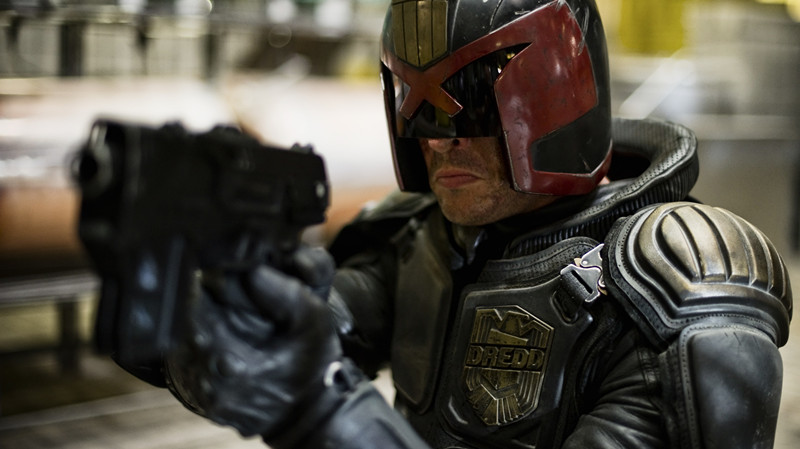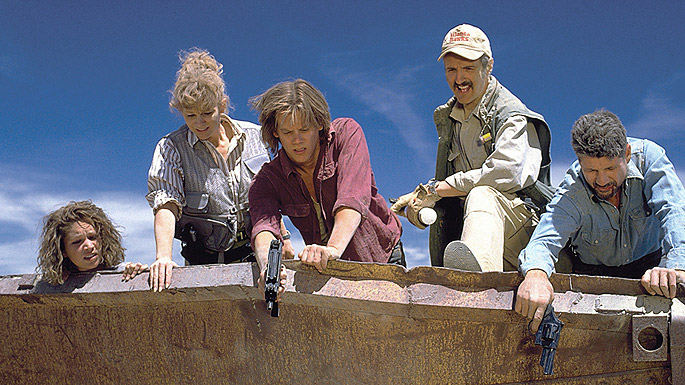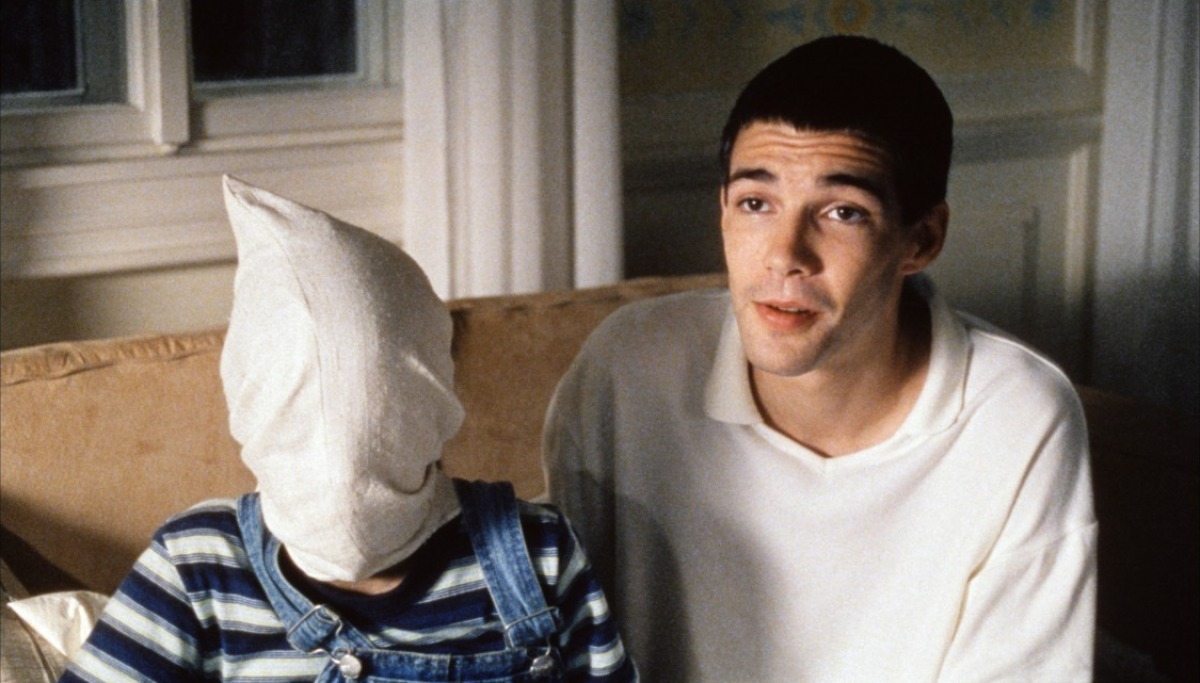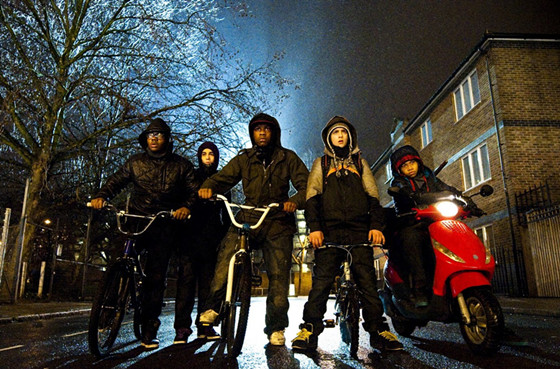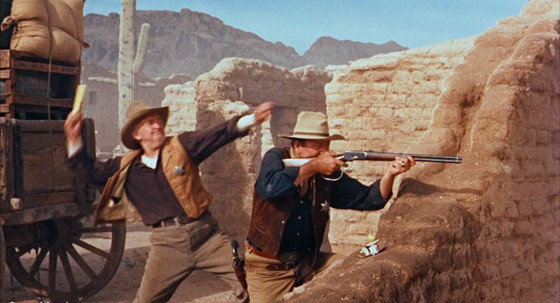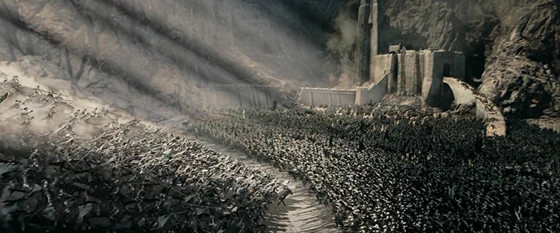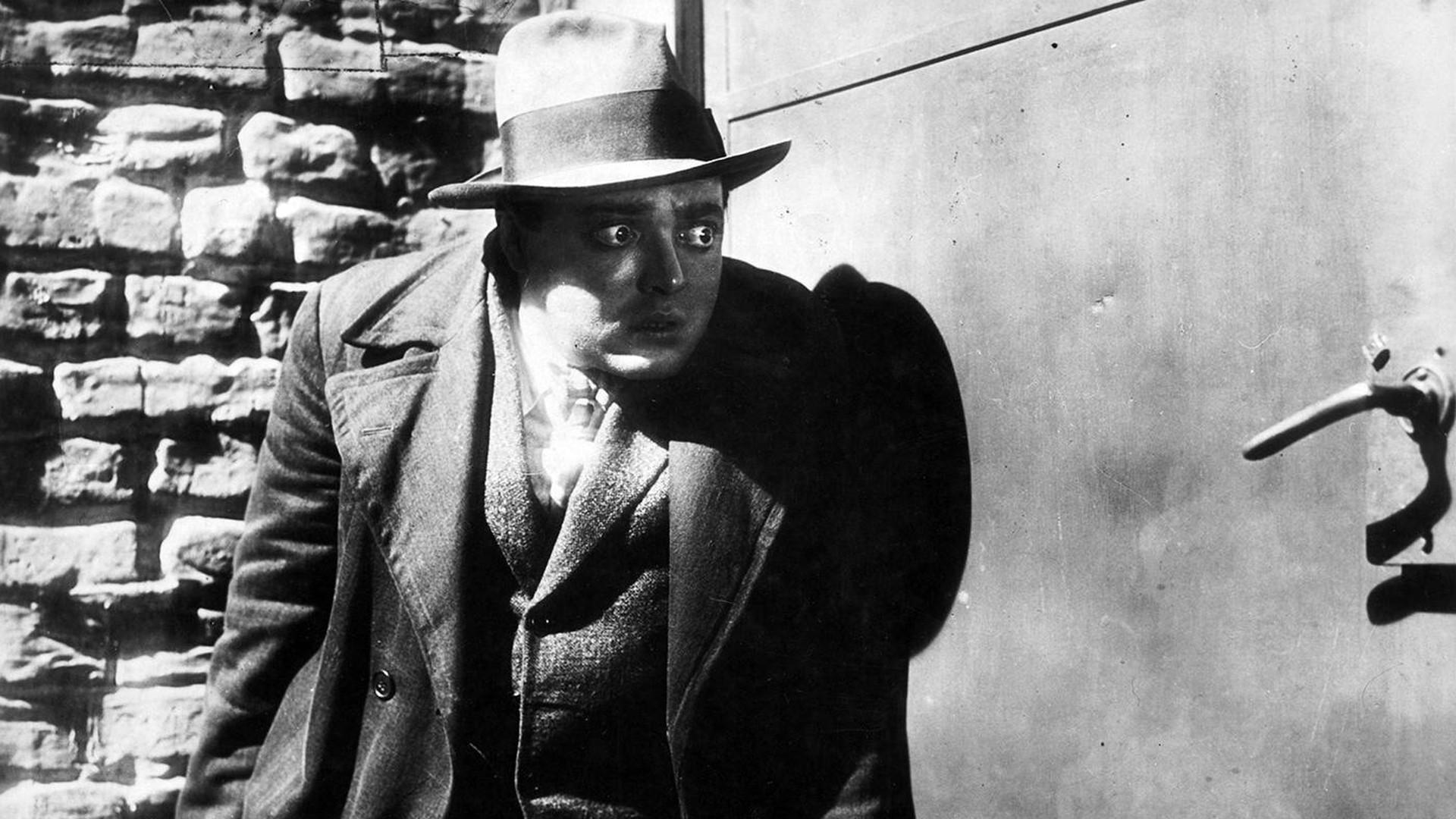14. Dredd (2012)
Pete Travis’ Dredd does all that it can to distance itself from the nearly unwatchable Sly Stallone turkey from 1995 and succeeds in spades. This sci-fi spectacle, written and produced by Alex Garland (Ex Machina), does the Judge Dredd character a great deal of justice, and fans of the original 2000 AD comic that spawned him have been rightly singing it’s praises since its 2012 release.
Set in the dystopian futuristic metropolis Mega-City one, the eponymous Judge Dredd – a geniusly well cast Karl Urban (perhaps best known as Bones McCoy in the rebooted Star Trek films) – is a law enforcer with far too much power. Acting as judge, jury, and executioner, Judge Dredd’s are the fascist police force of the future, and faster than you can say “penetrating police state satire” or titular anti-hero and his new partner, Judge Anderson (Olivia Thrilby) find themselves trapped in a 200-storey high-rise populated with dangerous baddies.
The superstructure tenement that Dredd and Anderson are cornered in is ruled with an iron fist by resident drug marquis Ma-Ma, played by a terrifying Lena Headey (Game of Thrones), who deals almost exclusively in Slo-Mo, a new designer drug. As solid sci-fi spectacle, feminist allegory, formidable speculative fiction, and high-concept spectacular, Dredd is a sudden, violent, and stylish satisfaction. The visuals are first-rate, with slow motion extravagance, color saturated combustion and formalized grit and blitz.
13. Tremors (1990)
Who knew that this low budget sci-fi/horror/comedy would become a modest sleeper success—later blowing up big on home video—and spawn four sequels? Lovable losers Val and Earl (Kevin Bacon and Fred Ward) finally decide to leave their one-horse dead end desert town on the exact day that giant, carnivorous, grumpy, subterranean worms – dubbed “Graboids” from local fixture Walter (a hilarious Victor Wong) – who hunt using sonar and rows of nasty razor-sharp teeth.
Tremors, directed by Ron Underwood (City Slickers) and written by Brent Maddock and S. S. Wilson, is a surprisingly solid B-movie melange. It’s funnier than one might expect, owing to the smart script and solid direction, sure, but the ensemble cast, including Michael Gross, Reba McEntire, and Finn Carter, are all peaceable and comedic. The concept, which could’ve easily flopped in lesser hands, gets evinced for all it’s worth.
One of Tremor’s many thunderbolt moments involves the gun-loving Gummers, Burt (Gross) and Heather (McEntire). As a commentary on gun culture tenacity and red neck lunacy, the Gummer’s stockpile ordnance and entitled bravado is both side-splitting and scary.
12. Funny Games (1997)
A well-to-do family visiting their lakeside cottage are unknowingly balanced on a precipice of disaster in Michael Haneke’s (Amour) vicious home invasion film, Funny Games.
Matriarch Anna (Susanne Lothar) has barely settled into her vacay with husband Georg (Ulrich Mühe), and young son, Schorschi (Stefan Clapczynski) when there’s an unexpected knock at the door. Two young men (Frank Goering and Arno Frisch), clean-cut and refined in appearance, with pleasant manners and inflection, claim to be friends of their neighbors and wish to borrow an egg. Trusting Anna allows the young men to enter her home where they quickly commence terrorizing and brutalizing the family.
This early film from Haneke—which he would later remake in English in 2008, shot-for-shot with a mainstream cast including Tim Roth and Naomi Watts—is borne from his more confrontational and provocative period. Senselessly deprived violence in polemical attire is paired with a feeling of hostility towards the viewer.
The sadistic tormentors frequently speak to the camera, addressing and implicating the audience in their violent behavior—which includes torture and murder, amounting to not-so-funny games for the victims. It’s an interesting tack, and one that generates troubling discourse, alternating almost unwatchable acts of savagery with jolts of jet-black comedy and dwindling hope.
11. Attack the Block (2011)
A near perfect distillation of horror, humor, science fiction and class polemic, writer/director Joe Cornish’s feature length debut, Attack the Block, is a monster movie with bite.
Set in the inner city of South London, the film artfully and carefully follows a teen gang caught up in an alien invasion. Now, as the at risk youths find themselves defending their besieged residential block from extraterrestrial forces Cornish captures the zeitgeist of contemporary England, a country in the midst of urban renewal and retrograde, where, apart from the alien invaders, alienation thrives in the stark and stalwart disconnect between age, class, and race.
The creatures themselves have a unique and distinct look; razor-sharp teeth that glow amidst jet black fur in a posture and stance close to a dog but also with a gorilla’s gait and size. They’re original and unforgettable creations that, combined with a breakout performance from John Boyega (Star Wars: The Force Awakens) as teenage hoodlum Moses, Attack the Block is a modern cult classic and an astonishing directorial debut to boot. Not to be missed.
10. Rio Bravo (1959)
With Rio Bravo director Howard Hawks (The Big Sleep) melds a reliable genre film standby—a ragtag crew of rejects holed up for one last, valiant stand—with an old-fashioned guns blazin’ Western romp, and the results are fist-pumpin’ fun.
The aptly named small-town sheriff John T. Chance, played by the one and only John Wayne, is joined by a somewhat typecast Dean Martin as Dude, the town drunk, the lame but laudable deputy with the unfortunate nickname of “Stumpy” (Walter Brennan), and a hot-headed gun-slinging troubadour Colorado Ryan (Ricky Nelson).
Watching the mismatched team play off each other is entertaining in its own right but once a vile band of desperadoes lay siege to the titular town of Rio Bravo the ante is upped considerably.
The only real fly in the ointment here is that Hawks famously declared this film to be the anti-High Noon – Fred Zinneman’s classic Western starring Gary Cooper, itself a political allegory that called out McCarthy-era witch hunting – with both the director and star John Wayne espousing right-wing rhetoric in promotion of the picture (these sentiments aren’t quite so overt but are present in the film).
It’s too bad as it does detract from what’s otherwise an enjoyable and influential, if somewhat overlong, siege picture. Regardless of it’s politicking and fire-eating, Rio Bravo is frequently cited as one of the best examples of the American Western and is unequivocally regarded as a classic.
9. Lord of the Rings: The Two Towers (2002)
It’s nothing short of astonishing how Kiwi low-budget splatter comedy king Peter Jackson (Bad Taste, Dead Alive) miraculously reinvented himself as big budget and even bigger spectacle adapter of J.R.R. Tolkien’s epic and massive three-volume book, Lord of the Rings. As fantasy trilogy it’s an unsurpassed and generous masterwork, and the second film, sandwiched right in the middle, The Two Towers, is an alternately terrific and terrifying film, primarily focused on the siege of Helm’s Deep.
In Middle-Earth our heroes Aragorn (Viggo Mortensen), Gimli (John Rhys-Davies), and Legolas (Orlando Bloom) find themselves in the combative nation of Rohan, joined by freshly resurrected Gandalf (Ian McKellen) they’re soon aiding the elves and defending the Helm’s Deep stronghold against an army of Urak-hai that’s 10,000 strong.
The ensuing battle is at the center not just of The Two Towers but the Lord of the Rings trilogy overall, and it’s a rip-roaring and often overwhelming affair. Rightly regarded by critics and fans as one of the greatest onscreen epic battles ever filmed, the action is never less than astounding, and it packs an emotional lollop as well. Fantasy films are rarely as satisfying, flashy, or as overwhelming as this.
8. M (1931)
An unusual and wholly original storytelling slice, M presents itself in a series of almost chimerical montage-like scenes and sequences that artfully detail a city in a state of panic and unbridled fear.
Shrilly whistling Edvard Grieg’s now chilling “Hall of the Mountain King”, the desolate and unassuming figure of Franz Becker (Peter Lorre, brilliant) is at the hub of the city’s torment. A child murderer, Becker has the city under siege as the police seem powerless to prevent him, coming down on all felonies as an act of impotent rage, turning organized crime to haunt the killer as well, along with vigilante mobs and crusading politicians.
Director Fritz Lang had already established himself as a visionary director with his expressionistic sci-fi masterpiece Metropolis (1927) but it was M that earned Lang the affectionate title of “Master of Darkness” while also anticipating the film noir genre with this imaginative and eerie precursor. Few films have the legacy and the longevity as M, an absolute masterpiece from one of cinema’s brightest luminaries. Unmissable.
